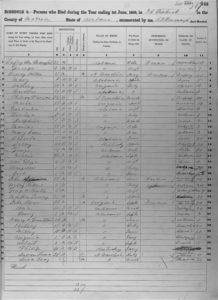Tuskegee Indians
Tuskegee Tribe: Meaning unknown, but apparently containing the Alabama term taska, “warrior.” Tuskegee Connections. The original Tuskegee language is unknown but it was probably affiliated with the Alabama, and hence with the southern branch of Muskhogean. Tuskegee Location. The later and best known location of this tribe was on the point of land between Coosa and Tallapoosa Rivers, but in 1685 part of them were on the Chattahoochee River near modern Columbus and the rest were on the upper Tennessee near Long Island. (See also Oklahoma and Tennessee) Tuskegee Villages. None are known under any except the tribal name of … Read more


